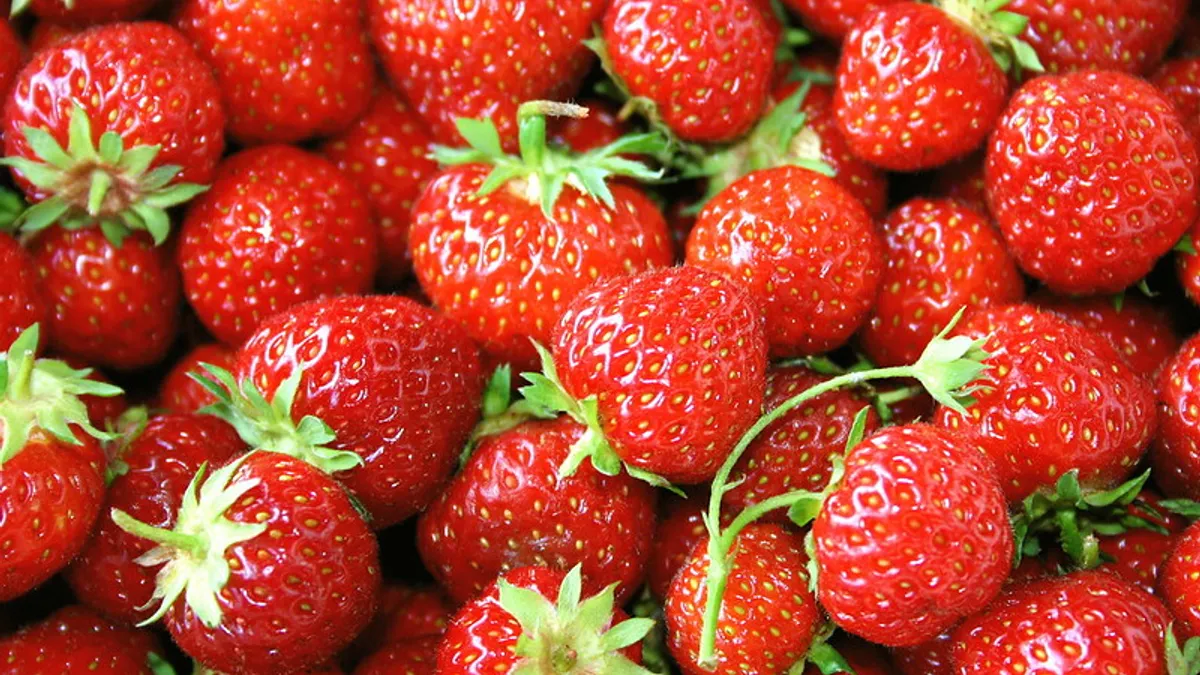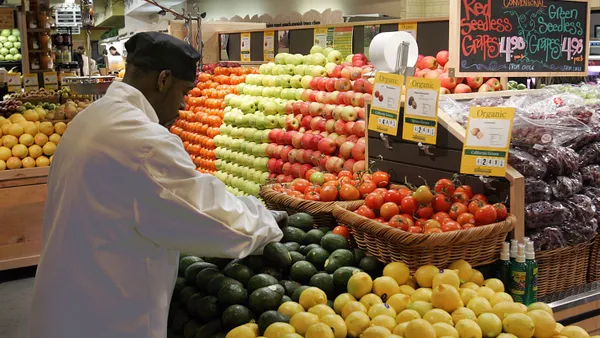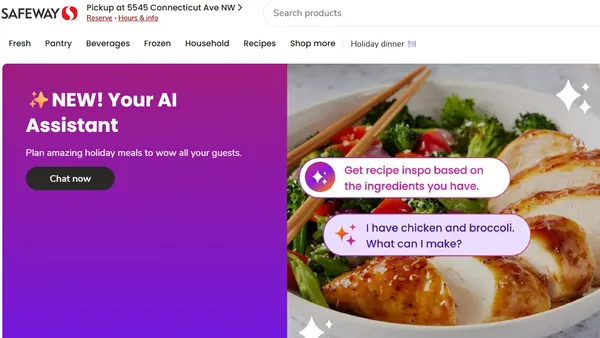Dive Brief:
- Driscoll’s is partnering with vertical farming company Plenty Unlimited to grow its strawberries year-round in its indoor farms, the companies said in a statement. The Financial Times said as part of the deal, Driscoll's is making a "major investment" in Plenty.
- Plenty will incorporate Driscoll’s proprietary genetics and berry expertise into its advanced indoor farming technology using its plant science insight. The controlled environment will allow Plenty to deliver consistent flavor, texture and size for the berries while removing the unpredictability of Mother Nature.
- Indoor farming has been a hot space in recent weeks with Revol Greens raising $68 million in a funding round to finance its growth and AppHarvest announcing plans to go public by merging with Novus Capital, a publicly traded special purpose acquisition company.
Dive Insight:
While growing produce on a large scale indoors is still in its infancy and unlikely to replace traditional farms anytime soon, it's almost certain that giant greenhouses will play a major role in producing fruits and vegetables going forward.
For one, consumers are eating more foods that are healthier and less-processed — a trend that has accelerated during the coronavirus pandemic. At the same time, shoppers are paying closer attention to how their favorite foods are grown and the impact they have on the environment.
Revol Greens, for example, has said its facilities use 90% less water than traditional field agriculture. The irrigation water it uses is UV-sterilized rainwater and snowmelt from its greenhouse roof.
In addition to sustainable water use, these indoor growing facilities are climate controlled, solar-powered and are not threatened by contaminated runoff of traditional farms.
Growing produce has long been subject to the unpredictability of Mother Nature. Persistent threats from pests and diseases threaten to not only wipe out a crop or sharply curtail yields, but could put a farmer out of business. Add in the growing impact of climate change, and raising produce indoors becomes an increasingly more attractive option.
J. Miles Reiter, Driscoll’s Chairman and CEO, said working with Plenty will place the company in a better position "to create a competitive market edge as we expand to more effectively meet the future consumer.” By growing its berries in Plenty's indoor farms, Driscoll's, which accounts for roughly a third of the North American berry market, not only minimizes any risk that could hurt the reliability of its supply each year, but increases its year-round availability.
The berries could be grown closer to areas further away from where the crops are traditionally produced. Today, the lion's share of the country's strawberry crop is grown in Florida and California. As part of the partnership, Driscoll’s strawberries will initially be raised in Plenty’s Laramie, Wyoming farm, which is the largest privately-owned vertical farm research and development center in the world.
Plenty recently partnered with Albertsons to supply greens to 430 stores in California. Using data analytics, machine learning and customized lighting, Plenty claims it has shown more than a 700% yield improvement in leafy greens in the last 24 months, while maintaining unique flavor and quality. Driscoll's is no doubt hoping for similarly promising results.
Driscoll’s existing partnership with row-crop farmers, most of whom have worked with the company for several generations, is tied to how much they are able to get for a crate of berries. The producer gets 85% and Driscoll’s gets the rest. Fewer farmers means less revenue for Driscoll’s to pay staff and invest in plant genetics or build a new distribution center. And less revenue limits how much producers can invest in their operations.
"If it's bad, then it's bad for all of us," Soren Bjorn, president of global berry brand Driscoll’s, said earlier this year.
The opportunity to raise berries indoors is unlikely to replace Driscoll's existing partnership with these growers, but it does open its products to new markets and additional times of the year when berries might not otherwise be available. Fresher, more plentiful fruit can only enhance Driscoll's dominance in the berry market.











